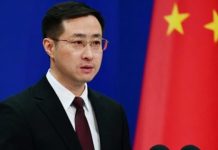By Makhdoom
Shehryar Babar
ISLAMABAD: The Federal Cabinet on Friday approved gas and electricity rates for five export sectors with major increase in prices.
The government has announced to increase the price of gas for five export sectors, gas will be supplied to five sectors at $9 per mmbtu, earlier the price of gas was $6 and a half per mmbtu.
The gas price has been fixed for the current financial year, these five sectors include textile, leather, carpet, surgical and sports. RLNG rate will be effective from July 1, while the electricity rate will be from Aug 1 till the end of FY23.
The government will provide a subsidy of Rs 40 billion on gas, while the increase in gas prices for other industries has been postponed.
On the other hand, electricity has been fixed at 9 cents per kilowatt for five sectors, the price of electricity has been fixed from August 1 to July 31, 2023. Review will be done on quarterly basis. The development comes after government withdrew the fixed tax for retailers and shopkeepers imposed through electricity bills for a year.
It means that the government has waived Rs30 billion taxation measures and it will have to find out avenues for collection of this amount in order to achieve the envisaged budget deficit and primary balance target agreed with the IMF.
Federal Minister for Finance Miftah Ismail and Minister for Energy Khurram Dastgir made the announcement to this effect after holding parleys with trading leaders earlier this month. Minister for Finance Miftah Ismail said that under the directives of Prime Minister Shehbaz Sharif and Mariam Nawaz the government took the decision to defer the imposition of fixed tax for retailers for one year.
After three months, the government would sit with traders to devise feasible system. He said that the previous taxation system would continue for next three months. The minister said that the government abolished tax of Rs3,000 to Rs10,000 per month which was going to be collected through electricity bills keeping in view consumption of power units.
There are millions of retailers working in the country and every government irrespective of political divide including the military regime had failed to bring them into tax net despite making different efforts.
Every time different tax schemes were introduced and fixed schemes were brought to lure them but they pressurised the government with the help of shutter down strikes to bow down the governments to withdraw tax schemes.
The PMLN considered traders as their constituency so they once again remained able to convince the government to withdraw fixed tax on them.
As the government made the fixed tax on retailers and shopkeepers part of Finance Act 2022 so the government would have to introduce ordinance to withdraw this tax and then it would be amended after three months period.
The government so far jacked up primary balance by Rs60 billion with two decision including allocating Rs30 billion funds for PSO to avert its default with the help of supplementary grants and now waiving Rs30 billion through fixed tax for retailers.
The FBR high-ups believed that they would have to find out avenues including imposing additional taxes to satisfy the IMF. The decision to this effect will be made after analyzing the performance of first quarter (July-September) period of the current fiscal year.
The FBR tax collection target has been fixed at Rs7,470 billion for the current fiscal year and materialising the desired target will depend upon the performance demonstrated by the tax machinery in the first quarter of the current fiscal year.




